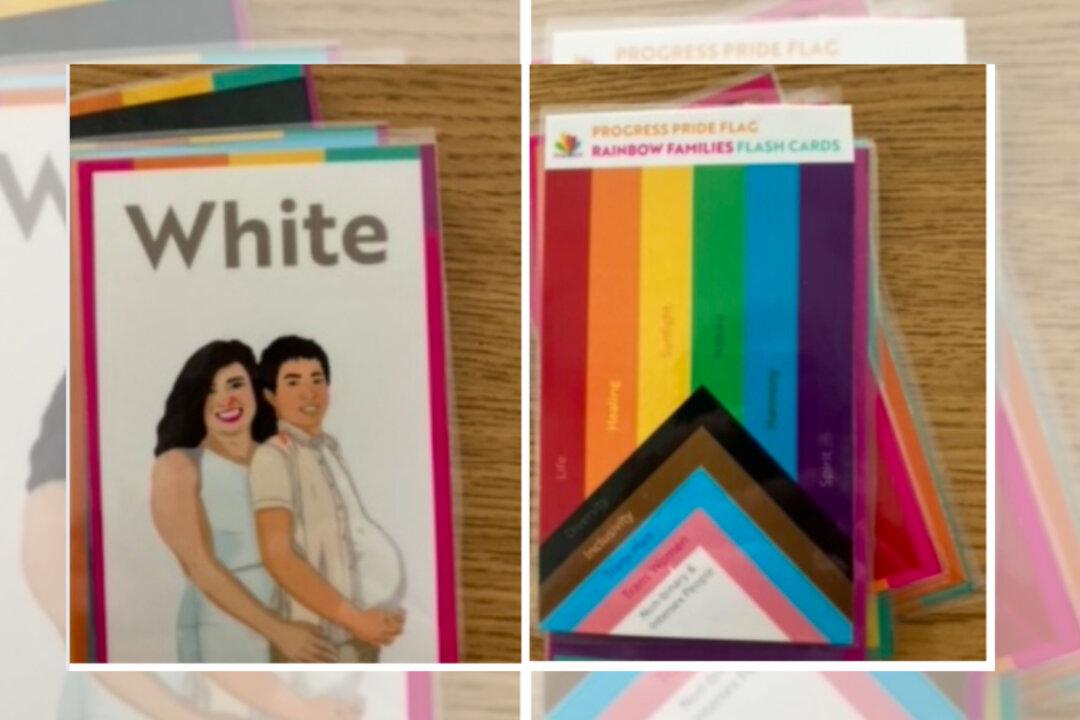A North Carolina teacher has resigned after being exposed using LGBT-themed flashcards, including one depicting a pregnant man, to teach preschoolers about colors.
North Carolina House Speaker Tim Moore, a Republican, shared photos of the cards on his personal website. He said the images were emailed to state Rep. Erin Paré by one of her constituents.





